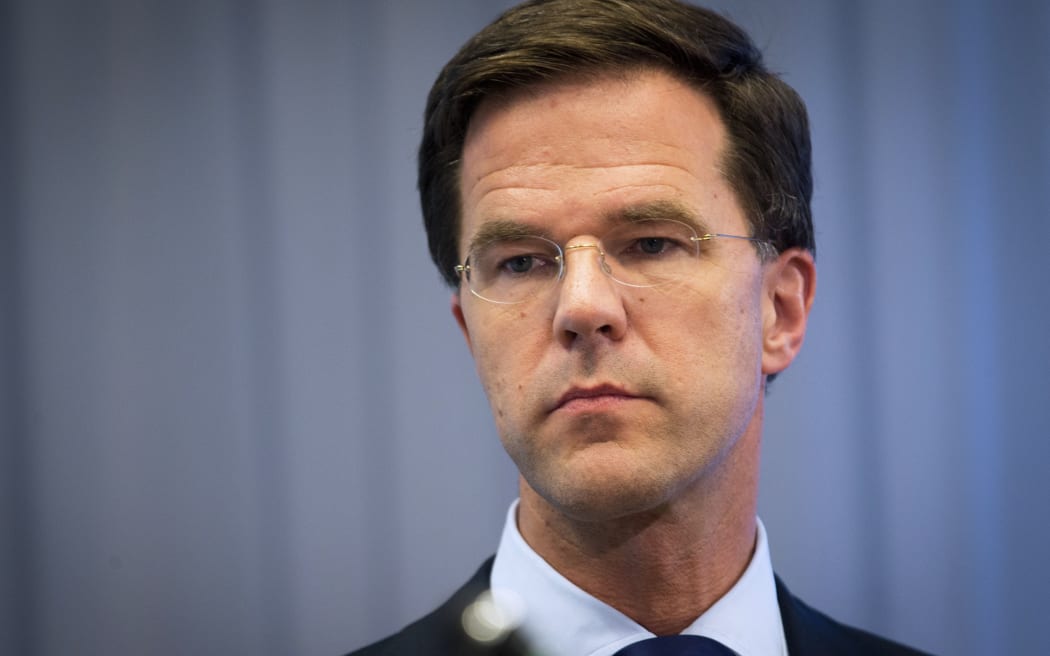Dutch coalition government collapses in migration row

By Mattea Bubalo and Robert Greenall for the BBC
The Dutch government has collapsed because of disagreement between coalition parties over asylum policies, Prime Minster Mark Rutte has said.
The four parties were unable to find agreement in crisis talks chaired by Mr Rutte on Friday.
The government was set up a year and a half ago but the parties have been opposed on migration for some time.
Local media reported fresh elections would likely be held in November.
Rutte's conservative VVD party had been trying to limit the flow of asylum seekers, following a row last year about overcrowded migration centres. His plans were opposed by his junior coalition partners.
Rutte confirmed the government collapse during a news conference on Friday evening, after holding an emergency cabinet meeting. He said he would hand his resignation to King Willem-Alexander on Saturday.
But Rutte added that ministers would continue their work as a caretaker cabinet ahead of the new elections.
Asylum applications in the Netherlands jumped by over a third last year to over 47,000, and government figures said earlier this year that they expect some 70,000 applications in 2023.
This week Rutte tried to force through a plan which included a cap on the number of relatives of war refugees allowed into the Netherlands at just 200 people per month.
But junior coalition partners the Christian Union, a pro-family party, and the socially liberal D66, were strongly opposed.
"The decision was very difficult for us", Mr Rutte told journalists as he announced his cabinet's resignation. The differences in views between the coalition partners were "irreconcilable", he added.
"All parties went to great lengths to find a solution, but the differences on migration are unfortunately impossible to bridge."
A compromise proposal, known as the "emergency brake", which would only trigger the restrictions in the event of an excessively high influx of migrants, was not enough to save the government.
"The four parties decided that they cannot reach an agreement on migration. Therefore they decided to end this government," the Christian Union's spokesman Tim Kuijsten said.
Rutte, 56, is the country's longest serving prime minister and has been in office since 2010. The current government - which took office in January 2022 - is his fourth coalition.
He has been under pressure on migration because of the rise of far-right parties such as Geert Wilders' PVV.
The Farmer-Citizen Movement (BBB), which became the biggest party in the upper house of parliament after a shock election win in March, said they will not serve in any future government lead by Rutte.
* This story was first published by the BBC.